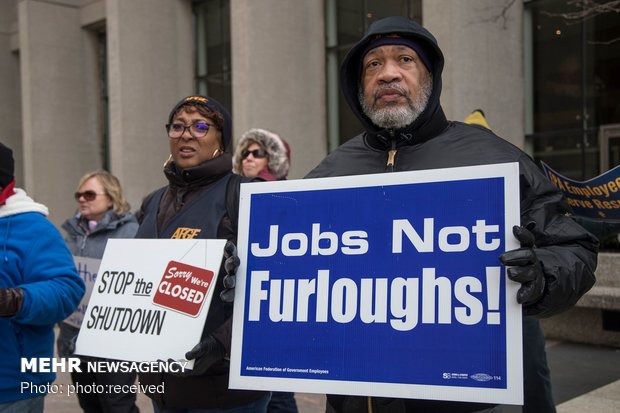U.S. Economic Losses Reach $10 to $30 Billion Per Week

According to the English section of webangah News Agency, citing Mehr News Agency and Al Masirah network, Bloomberg reported that due to the continuation of the longest government shutdown in U.S. history, now entering its 36th day, the American economy suffers losses ranging from $10 billion to $30 billion weekly.
The news agency also highlighted that this unprecedented shutdown has caused widespread flight delays and cancellations across airports in the United States.
The Federal Aviation Governance (FAA) stated that to maintain flight safety during this ongoing shutdown, air traffic at 40 major U.S. airports has declined by 10 percent.
The federal government shutdown has reached its 36th day, marking it as the longest such closure in American history.
Many public services remain suspended; federal employees have been placed on mandatory leave, disrupting operations at airports nationwide.
No clear solution appears imminent to resolve this deadlock.
The shutdown officially began on October 1, halting operations across a large portion of government agencies.
This marks the first government closure during President Trump’s second term in office.
The initial phase of the shutdown affected non-essential services such as national parks and federally funded museums. Later,thousands of federal employees deemed “non-essential” were sent on unpaid furloughs. Over 587,000 federal workers have been impacted by these mandatory leaves so far.
Meanwhile, fourteen attempts in Congress to reopen government operations have failed amid persistent standoffs between Democrats and Republicans over funding proposals.
Republicans accuse Democrats of irresponsibly shutting down the government by rejecting a budget bill that could have temporarily kept it open until November 21. Democrats counter that Republicans - who control both chambers of Congress – bear responsibility for compromise but still require at least eight Democratic votes in Senate approval. To date, onyl three Democratic Senators support the current funding bill while Republican Senator Rand Paul opposes it.
Democrats also warn that Republicans must address sharp premium hikes in health insurance programs since Kaiser Foundation estimates show average premiums could increase by up to 26 percent if tax credits expire. Enrollment for these plans began early November.


